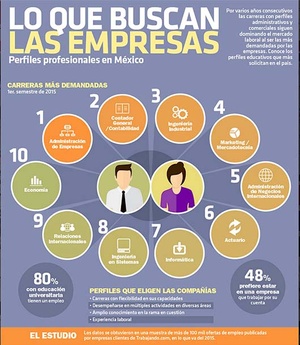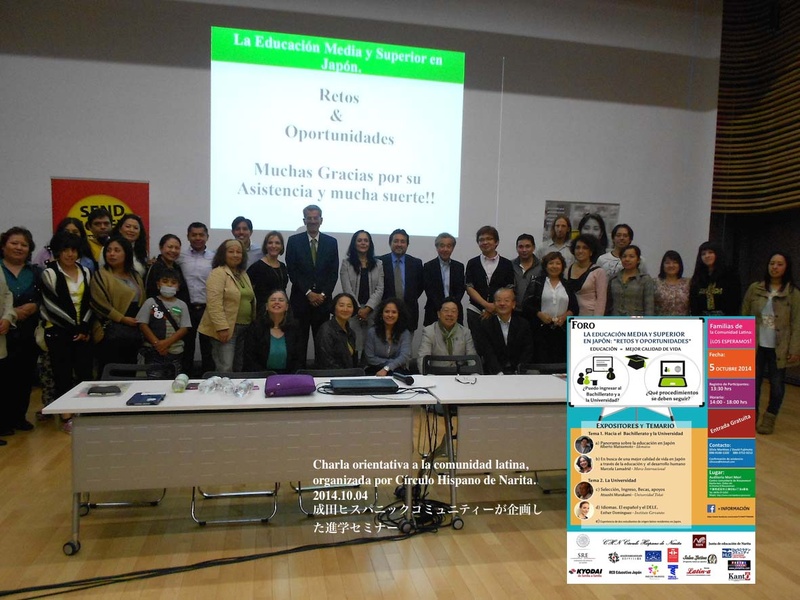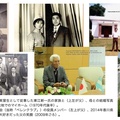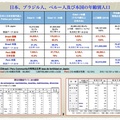So far, I have written about the educational progression status of Japanese descendants and international students in Japan, the skills they are seeking in the labor market, and the hiring situation.1 Foreigners and children of people with foreign roots and their parents are interested in what the labor market in Japan or their home country expects and what skills it is looking for.
At seminars for those wishing to enter higher education, I am often asked questions such as "What should I study to make money?", "What field of study is easiest to find a job in?", "Which university should I go to?", "How many scholarships and loans are available?", and "Would it be better to study at a university in Peru, or go to a university in Japan?"

A graph that gives hints on the types of jobs companies in Mexico are looking for and what to study (a survey result shows that 80% of university graduates are able to find employment, and half of employed people would rather be company employees than start their own business), El estudio , 2015.11
My answers to these practical questions are as follows: 1) Work hard enough to get into and graduate from a fairly good high school, and get a recommendation to go to a university; 2) If you want to save on tuition, get good enough to get into a local public university (national or prefectural); 3) Whether it's a language or math, make the most of your strengths and realistically consider which subjects will be advantageous for finding a job; 4) If you want to get a job, improve your Japanese skills as much as possible and be able to obtain the professional qualifications required by the job market. The choices and decisions you make require a lot of effort from both parents and children, and you also need to consider the burden on the family finances. To achieve your goals, you need to get good grades and overcome any disadvantages.
If one considers going to a university in one's home country, there is no way one can get in with the level of language proficiency one uses at home. Even in South America, it is difficult to get into a prestigious university, let alone obtain the credits required to graduate, and submitting a thesis is mandatory, making it harder than graduating from a university in Japan. In some cases, it can take six or seven years to finally obtain a degree. If one chooses a national university, tuition fees are free or low, but the costs of living and textbooks will be considerable. Only about one-third of students are able to graduate.
Recently, when reading articles in South American newspapers and magazines, as well as papers by experts, the importance and necessity of higher education is emphasized in every country. However, many countries also point out the problem of mismatch, which is an oversupply of university graduates with subjects that society (the labor market) does not need, and the fact that the quality of many high school and university graduates is so low that even if they are hired, effective training cannot be provided.
In Latin America, educational disparities due to income and social disparities are serious, 2 and the lack of infrastructure and low-quality teachers at public schools attended by children from the lower and rising middle classes are major political issues for which it has been difficult to find an appropriate solution. University education is positioned as a democratic right, and obtaining a degree is thought to guarantee social advancement and a rise in the standard of living. However, as seen in the protests by university students that took place in Chile a few years ago, the frustration of young people who could not find work became a major political movement, eventually escalating into the occupation of many universities, including the National University of Chile, by student groups (June 2011). This was blamed not only on the problem of rising tuition fees, but also on the proliferation of useless faculties.
I was born in Buenos Aires Province, Argentina, and went on to university, but as a second generation immigrant, I grew up listening to the success stories of my predecessors from my parents from an early age. I was respected as a minority Japanese, and was always told that it was important to be at the top or in the top ranks in order to overcome discrimination and bullying. However, when I look at my high school classmates and friends in the Japanese community, only a very small number actually went on to university, with at most 30% of the total. Even if they did enter university, many dropped out, and perhaps only about half of them were able to graduate. Also, looking at the academic fields and majors of Japanese at that time, many chose to become freelancers (lawyer, accountant, doctor, pharmacist, architect, etc.) so that they could eventually start their own business. Recently, there has been an increase in Japanese people working in a wide range of specialized fields such as government and private companies, but this still does not mean that more than half of high school graduates go on to university, as in Japan, and more than 90% of those graduates are able to find employment. This may sound harsh, but if you only have mediocre language skills, no clear goals, and the academic ability to withstand fierce competition, I would not recommend receiving an education in your home country.
If you want to work globally, you need to sell your language skills and ability to manage cultural diversity. Of course, a Japanese university education is sufficient. Even if you don't have a university degree, you can make up for it with your language skills and experience, and make up for it with effort and persistence. For example, in central Mexico, there are many affiliated companies of Japanese automobile manufacturers, and they are desperate for people who can speak Japanese, English, and Spanish. Gaining experience in such a place for a few years is one option.
Young people, whether they are students or working adults, often complain that they "can't find anything they like." However, in the course of a long working life, it is not always possible to do the work you like, nor is it always the case that you are blessed with good bosses and colleagues. Furthermore, in any country, when you are young, it is difficult to know exactly what to study or whether that subject will suit you. I have interacted with many Peruvian children in Japan, and those who have been able to go on to a fairly good university and get a good job have made immeasurable efforts on their own, along with the understanding of their families. In many cases, they have made choices that were achievable, rather than based on dreams or hopes. And they are very grateful to their parents and high school teachers.
Human resource experts have made the harsh point that even if you study at a top university, if you are unable to do the job, you will not be valued wherever you go. So what does it mean to be "able to do the job"? It is about being able to do the job required by the employer in a job where it is easy to get hired and improve your skills. In fact, while the number of university graduates is increasing in Latin America, there remains a serious labor shortage in the types of jobs that companies are looking for, mainly in technical fields. In many countries, there is such a lack of "able to do the job" that it is interfering with the development of infrastructure and industrial development.
According to reports from the Peruvian Ministry of Education and the IDB (Inter-American Development Bank), 3 the reality is that in many countries there are many children and young people who do not receive a sufficient or appropriate level of education, and only those who attend a select few private high schools are able to advance to high-level national universities and obtain relatively well-paying jobs.
Both in South America and Japan, reform of higher education is required, and there is an urgent need to develop human resources that meet the market demand. However, in Japan, there is still a tendency to place more importance on which university you studied at rather than what you studied, so young people often find employment at places that are flexible in hiring, regardless of their faculty. Rather than being unwilling, it may be that each person is realistically accepting their own conditions and limitations. In addition, the labor market currently has the capacity to accept many graduates. However, the intensification of international competition and the increase in labor productivity due to globalization in the future will undoubtedly require each educational institution to provide a more practical curriculum.
Just a few months ago (June 2015), the Ministry of Education announced a policy to turn universities into educational institutions that provide vocational education and skills training. It is expected that existing junior colleges and universities will be converted into vocational education schools, and this is scheduled to be implemented from 2019.
Children of Japanese descent living in Japan and their parents must also seriously consider and choose their further education and career paths while keeping in mind the current changes in Japan and the fluctuations in the global economy. It is said that investment in education pays off over time, but for many young people, repayment of debts begins once they enter the workforce (withdrawal from their salary), so it is also important to aim for practical jobs that allow them to improve their skills.
Notes:
1. " Employment of Japanese university graduates and second generation foreigners ," Discover Nikkei , 2014.12.08
" Increase in foreign students finding employment in Japan and challenges facing Japanese companies ", Discover Nikkei, 2015.07.28
2. “ Temple of Inés: How to educate children ”, PERU 21 , 2015.07.21
3. “ BID: Students selling universities and institutions without having to help a good student ”, Gestion , 2015.05.26
Laura VELA, “ 10 habits for the job that I do not have in the escort ”, DineroenImagen , 2015.11.17
© 2016 Alberto J. Matsumoto







